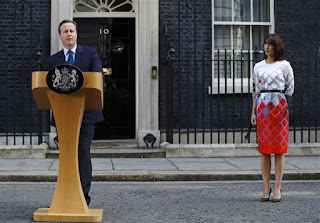Why Presidential Amnesty Programme failed – N’Delta Forum
The Pan Niger Delta Forum (PANDEF) has made a strong case for a
comprehensive review of the Presidential Amnesty Programme for militants
in the Niger Delta, saying the scheme failed to achieve its goals in
the last seven years, because of the inability of the Federal Government
to fully implement its various components as captured in the amnesty
proclamation document Late President, Umar Musa Yar’Adua, had in 2009,
granted amnesty to militants, following the recommendations of the
Presidential Panel on Amnesty and Disarmament for Militants of the Niger
Delta.
The programme was designed to include not only disarmament of the militants but their demobilization and reintegration into the normal society. It also included training of these young men in various trades and vocations to re- channel their energies from violence and criminality into productive economic ventures.
The scheme also had another component, which required the government to pursue the policy of liberalizing the petroleum sector to make way for the entry of the oil bearing communities to participate actively in the oil and gas industry.
Spokesman for PANDEF, Dr. Alfred Mulade, who gave an assessment of the pre-dialogue parley, which held last Tuesday at the Aso Rock, Presidential Villa, Abuja, said that the issue of the Presidential Amnesty Programme featured prominently during the meeting top Niger Delta leaders held with the Federal Government.
Mulade said that PANDEF impressed it upon the Federal Government that there was need to review the programme in order to ensure that the other important components were fulfilled as a way of achieving sustainable peace and economic development in the Niger Delta.
Mulade said that, while the outcome of this initial meeting portends some good omen, the proposed dialogue was very important as it would enable the stakeholders sit down with the government team to resolve all other issues hindering peace in the region.
“We told Mr. President that all that has been done in the Amnesty is just one pillar of the programme and has to do with disarmament and demobilization of the militants. The other aspects, that’s the involvement of the communities in the ownership of oil and gas assets, have not been touched.
“Amnesty is not just paying some stipends to some youths in the Niger Delta or sending some of them for training. There are so many other things. So, that is why there is need for us to look at the Amnesty Programme critically to examine what and what has been done, what is left to be done and how it should be done.
“At the meeting, Mr. President also responded rightly that as soon as he assumed office, he reached out for the Amnesty proclamation document and he had passed it on to his aides to study so that he could be properly advised on what to do about what is contained in the document. So you can see that we are working hard to see all we need to do are on the front burner. We expect our policy makers to look at these issues and decide on the way to go. One thing is to have the powers to do the right thing; another is to have the right information and that is what we have helped the government to do at this meeting,” he said.
According to Mulade, the pre-dialogue meeting was a huge success because PANDEF seized the opportunity to present its 16-point agenda to the Federal Government, which captured the key challenges facing the oil rich region.
He disclosed that even before the group presented its demands, the Federal Government, through the Minister of State for Petroleum Resources, Dr. Ibe Kachikwu, announced that it had already given approval for the take-off of the Maritime University, Okerenkoko, Delta State.
“So to us, that was a good gesture on the part of this government. What is left now is for the details to be worked out by the appropriate authorities.
“We expect the government to nominate its own team and I hope that will be done soon so that the actual dialogue can begin because it is at the dialogue process, that the other issues would have to be taken one after the other. You don’t expect that all the issues will be resolved in one day or that the issues will be resolved before the dialogue process commences,” he said.
A major part of the 16-point agenda, Mulade said, had to do with the operation and funding of the Niger Delta Development Commission (NDDC), the major interventionist agency created to fast track the development of the region.
He said that bringing the issue of the NDDC to the dialogue table was an indication that stakeholders in the Niger Delta have not been comfortable with the state of the commission.
“It shows that the leader ship of the region is also concerned about the performance of the NDDC. We believe that there is an urgent need for it to be restructured and provided with good funding. This is why we said that there is need to look into the operations and funding of the NDDC. These are some of the details that will be worked out during the dialogue. How is the agency funded? You can have a good structure but if it is not well funded, how does it perform? You may not be able to perform. Those are the details that the dialogue team should be able to deliberate upon when the time comes.
“We want to see that there is proper funding, transparency and that NDDC should perform optimally. It is not the duty of PANDEF to tell the management of NDDC what to do but we can use the opportunity provided by the dialogue to look properly at some of the challenges facing the agency,” Mulade said.
The programme was designed to include not only disarmament of the militants but their demobilization and reintegration into the normal society. It also included training of these young men in various trades and vocations to re- channel their energies from violence and criminality into productive economic ventures.
The scheme also had another component, which required the government to pursue the policy of liberalizing the petroleum sector to make way for the entry of the oil bearing communities to participate actively in the oil and gas industry.
Spokesman for PANDEF, Dr. Alfred Mulade, who gave an assessment of the pre-dialogue parley, which held last Tuesday at the Aso Rock, Presidential Villa, Abuja, said that the issue of the Presidential Amnesty Programme featured prominently during the meeting top Niger Delta leaders held with the Federal Government.
Mulade said that PANDEF impressed it upon the Federal Government that there was need to review the programme in order to ensure that the other important components were fulfilled as a way of achieving sustainable peace and economic development in the Niger Delta.
Mulade said that, while the outcome of this initial meeting portends some good omen, the proposed dialogue was very important as it would enable the stakeholders sit down with the government team to resolve all other issues hindering peace in the region.
“We told Mr. President that all that has been done in the Amnesty is just one pillar of the programme and has to do with disarmament and demobilization of the militants. The other aspects, that’s the involvement of the communities in the ownership of oil and gas assets, have not been touched.
“Amnesty is not just paying some stipends to some youths in the Niger Delta or sending some of them for training. There are so many other things. So, that is why there is need for us to look at the Amnesty Programme critically to examine what and what has been done, what is left to be done and how it should be done.
“At the meeting, Mr. President also responded rightly that as soon as he assumed office, he reached out for the Amnesty proclamation document and he had passed it on to his aides to study so that he could be properly advised on what to do about what is contained in the document. So you can see that we are working hard to see all we need to do are on the front burner. We expect our policy makers to look at these issues and decide on the way to go. One thing is to have the powers to do the right thing; another is to have the right information and that is what we have helped the government to do at this meeting,” he said.
According to Mulade, the pre-dialogue meeting was a huge success because PANDEF seized the opportunity to present its 16-point agenda to the Federal Government, which captured the key challenges facing the oil rich region.
He disclosed that even before the group presented its demands, the Federal Government, through the Minister of State for Petroleum Resources, Dr. Ibe Kachikwu, announced that it had already given approval for the take-off of the Maritime University, Okerenkoko, Delta State.
“So to us, that was a good gesture on the part of this government. What is left now is for the details to be worked out by the appropriate authorities.
“We expect the government to nominate its own team and I hope that will be done soon so that the actual dialogue can begin because it is at the dialogue process, that the other issues would have to be taken one after the other. You don’t expect that all the issues will be resolved in one day or that the issues will be resolved before the dialogue process commences,” he said.
A major part of the 16-point agenda, Mulade said, had to do with the operation and funding of the Niger Delta Development Commission (NDDC), the major interventionist agency created to fast track the development of the region.
He said that bringing the issue of the NDDC to the dialogue table was an indication that stakeholders in the Niger Delta have not been comfortable with the state of the commission.
“It shows that the leader ship of the region is also concerned about the performance of the NDDC. We believe that there is an urgent need for it to be restructured and provided with good funding. This is why we said that there is need to look into the operations and funding of the NDDC. These are some of the details that will be worked out during the dialogue. How is the agency funded? You can have a good structure but if it is not well funded, how does it perform? You may not be able to perform. Those are the details that the dialogue team should be able to deliberate upon when the time comes.
“We want to see that there is proper funding, transparency and that NDDC should perform optimally. It is not the duty of PANDEF to tell the management of NDDC what to do but we can use the opportunity provided by the dialogue to look properly at some of the challenges facing the agency,” Mulade said.



Comments
Post a Comment